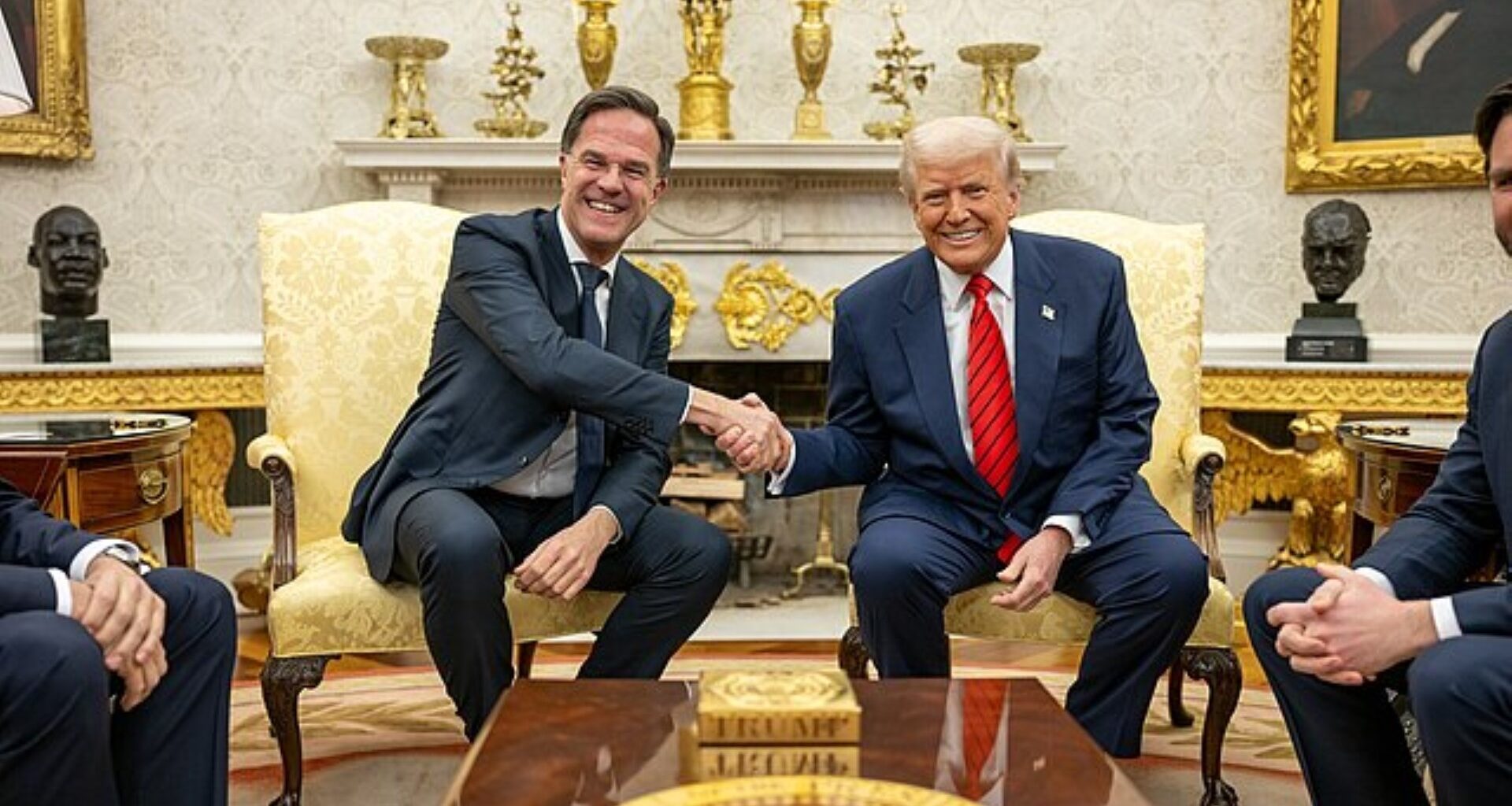A month on from the announcement of a new U.S.-E.U. trade deal, which has been widely criticized as a European capitulation to Trump’s threats, we speak with Varg Folkman, a policy analyst from the Europe’s Political Economy programme at the European Policy Centre (EPC), to help make sense of the deal and its implications for Europe.
The phrase of the moment, following the announcement last month of a new trade deal between the European Union and the United States, was “humiliation.” European commentators of every political stripe, right-wingers, left-wingers, and centrists, too, all decried the deal as a terrible humiliation for the European Union and, specifically, for the European Commission president, Ursula von der Leyen, who proved before the eyes of the world her inability to resist the whims of Donald Trump—or “Daddy,” as the NATO secretary general, Mark Rutte, calls him. Von der Leyen tried her best to spin her capitulation kindly, celebrating the deal for creating “certainty in uncertain times” and delivering “stability and predictability for citizens and businesses on both sides of the Atlantic.” But nobody, really, buys that. She had been humiliated, while Daddy had gotten everything he’d wanted.
The European Union has, for no discernible gains, agreed to allow the United States to extract its wealth, almost as if it was a colony offering tribute to its imperial overlord—there is, indeed, a poetic sort of irony in Europe being on the other side of such a one-sided arrangement. While there remain many specific details to iron out, the deal, broadly speaking, sees European exporters forced to pay 15 percent tariffs on most of the goods they export into the U.S. market, while, on the other hand, American exporters won’t pay any tariffs on goods they send into the E.U. The Europeans have also agreed to invest more in the United States, with commitments to buying more American energy and weapons specifically standing out. And, to rub salt into the wound, there is no real sense that the deal will, as von der Leyen hopefully claimed, truly provide any certainty. Since when does Trump allow for that?
The specific implications of the deal are still hazy, but, to help make a bit more sense of it, we spoke to Varg Folkman, a policy analyst from the Europe’s Political Economy program at the European Policy Centre (EPC), to ask him about how bad the deal really is for Europe, how things might have played out differently, and whether or not there are, in fact, any benefits for Europe. His responses have been lightly edited for length and clarity.
We’re probably going to speak a lot about what is wrong with this deal, but, before that, can we draw out any positives?
If you were to draw something positive from it, I would say that [the global trading situation today] is a game of relative advantage. While trying to trade with the U.S., are you doing better or are you doing worse than your comparable trade partners? In that regard, the E.U. didn’t do that bad, necessarily. They got a 15 percent flat tariff, but the Most-Favored Nation (MFN) tariff is baked into it. While, for instance, the U.K. or Japan will have to trade with the flat tariff and then put the MFN tariff on top. So [the E.U.] got a concession there that most haven’t gotten. That’s a small silver lining.
But people claim that this will lead to stability and certainty. That remains to be seen. We know that Trump doesn’t necessarily stick to the deals he’s made. There’s maybe a little bit more certainty than before, but I wouldn’t say that it delivers a huge amount, either.
What alternative measures could the E.U. have taken, rather than folding to Trump’s demands, and, additionally, could you speculate as to why it didn’t do them? Is it a simple matter of European weakness?
I don’t necessarily think the E.U. is too weak. I think we underestimate ourselves sometimes. There has been analysis of how the E.U. would have done if it tried to play hardball in the same way that China did. Of course, the E.U. doesn’t have the same leverage over critical raw materials that China does, but, when it comes to input into U.S. industry, [the U.S.] relies almost as much on E.U. inputs as on Chinese inputs. So if a full-scale trade war was sparked, the E.U. could possibly cripple, or at least hold up, a lot of U.S. industry and really impose damages on U.S. industrial production. That could possibly have been pretty damaging to Trump as well. It’s only a hypothetical. We don’t really know what would have happened, but that is one possibility.
